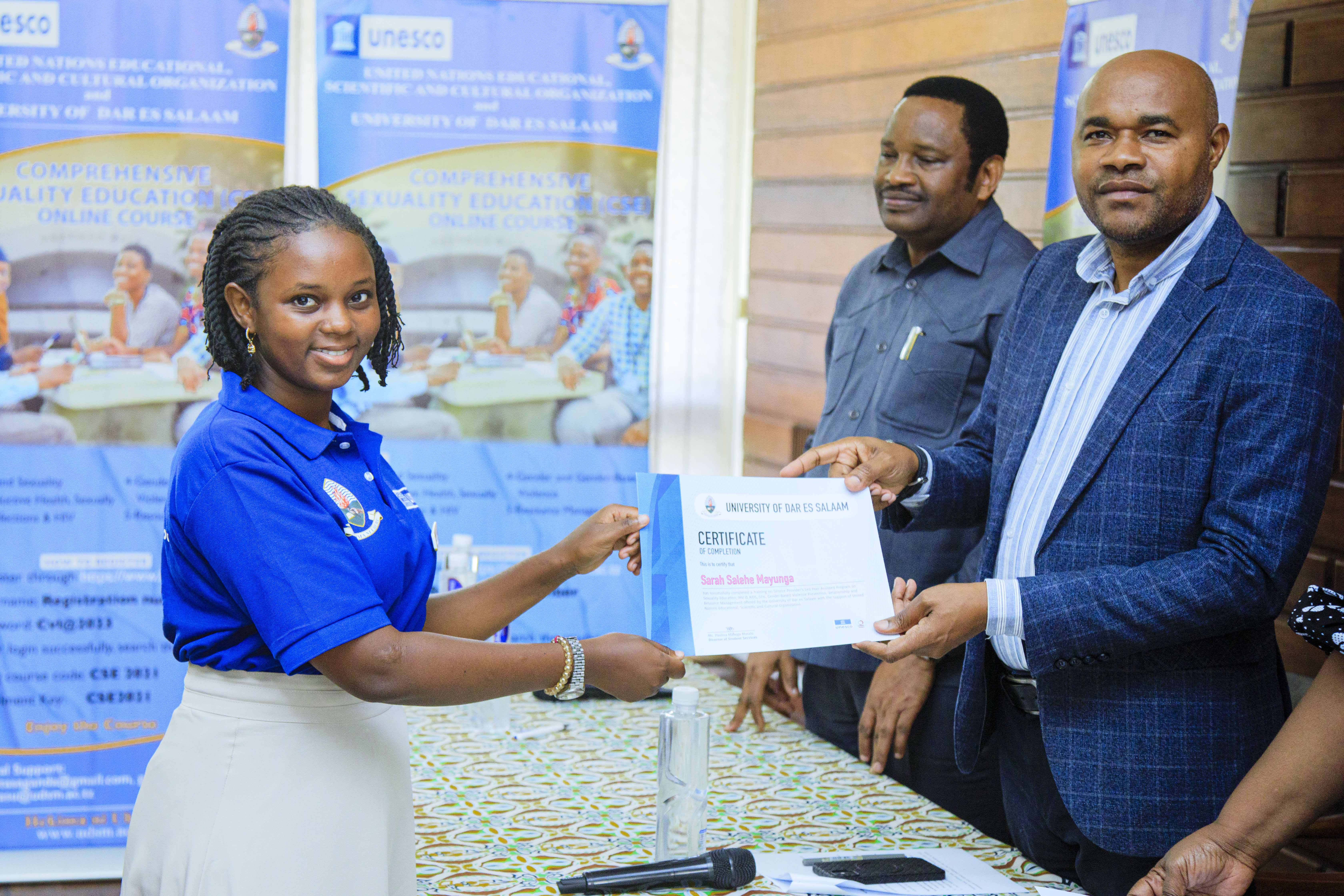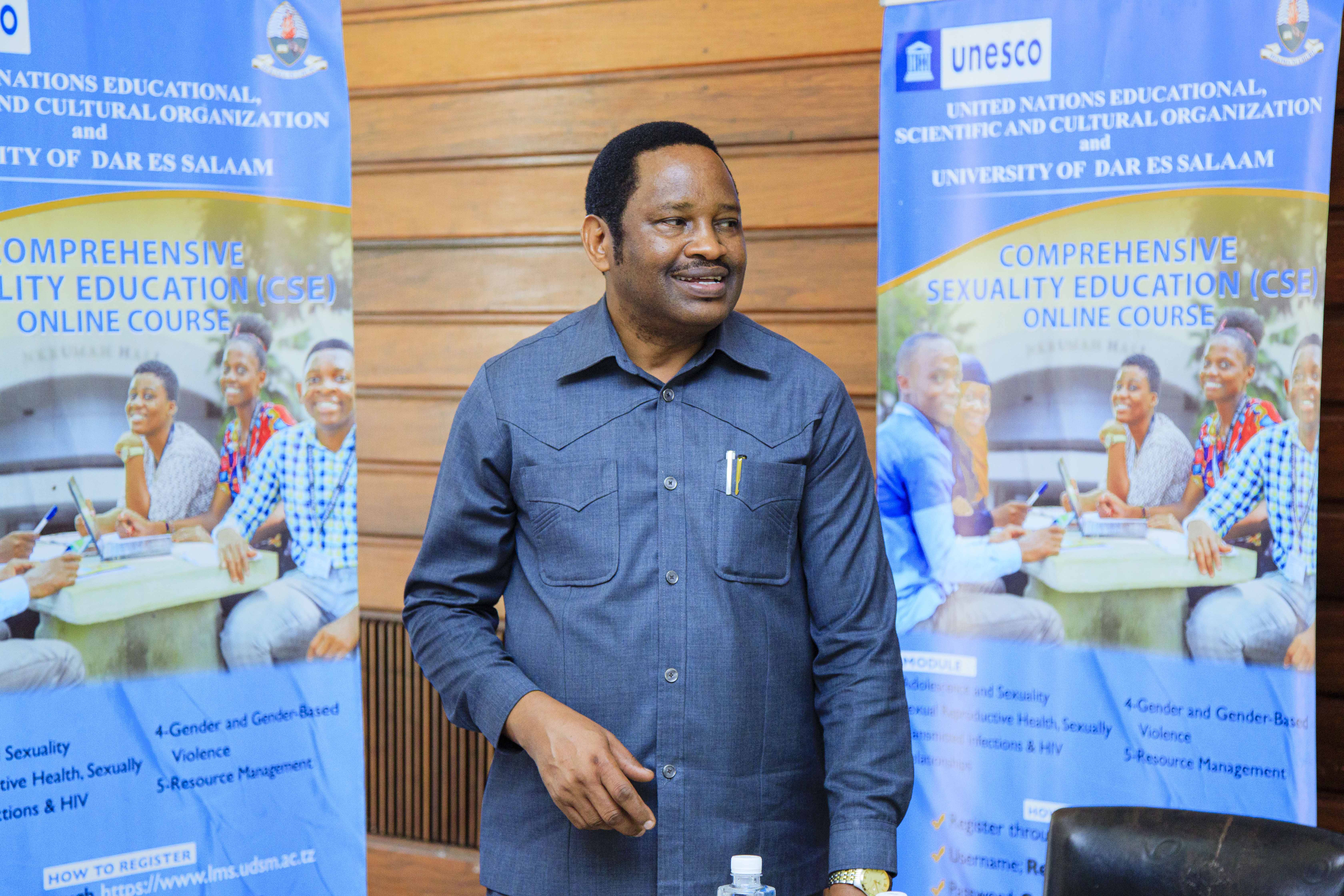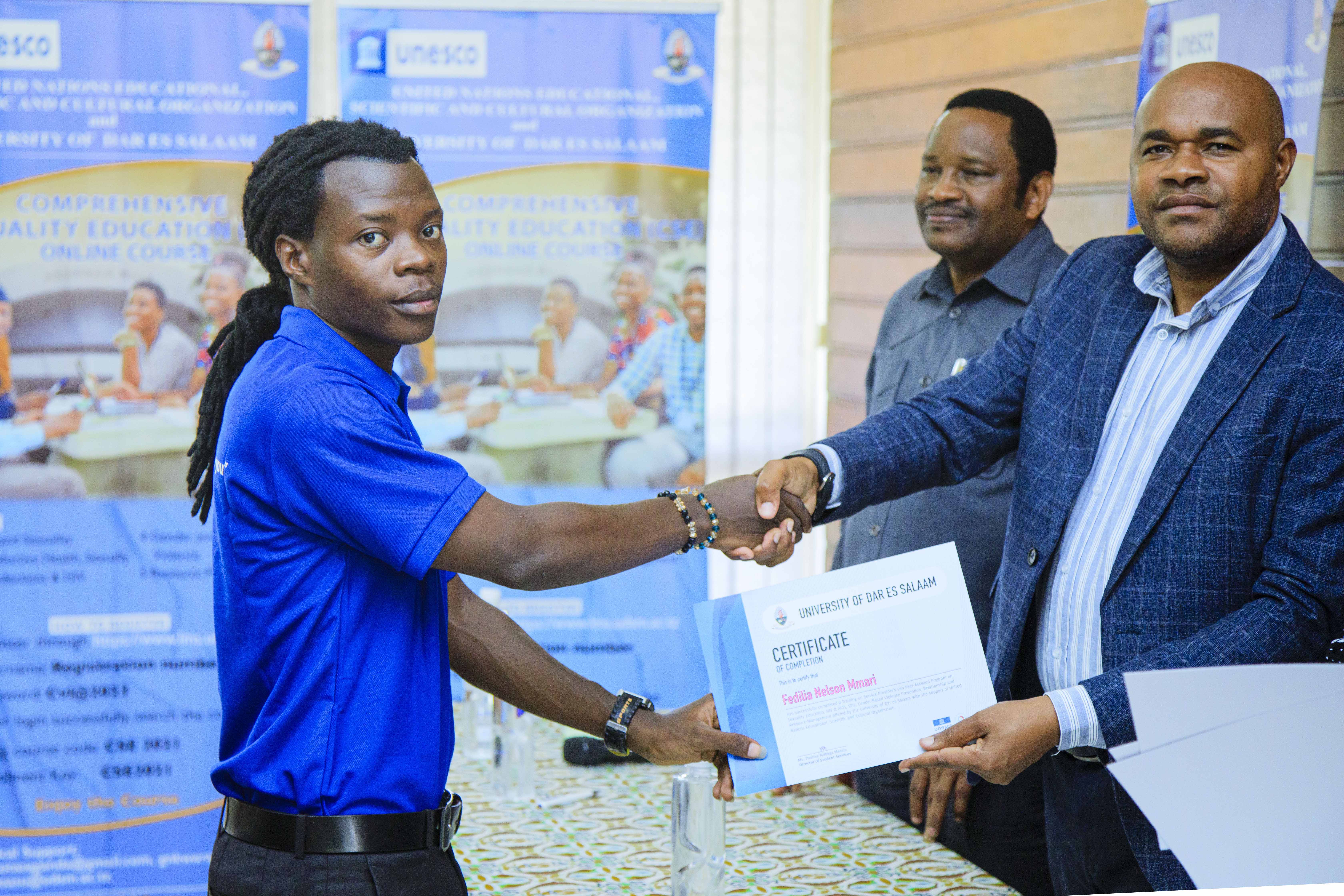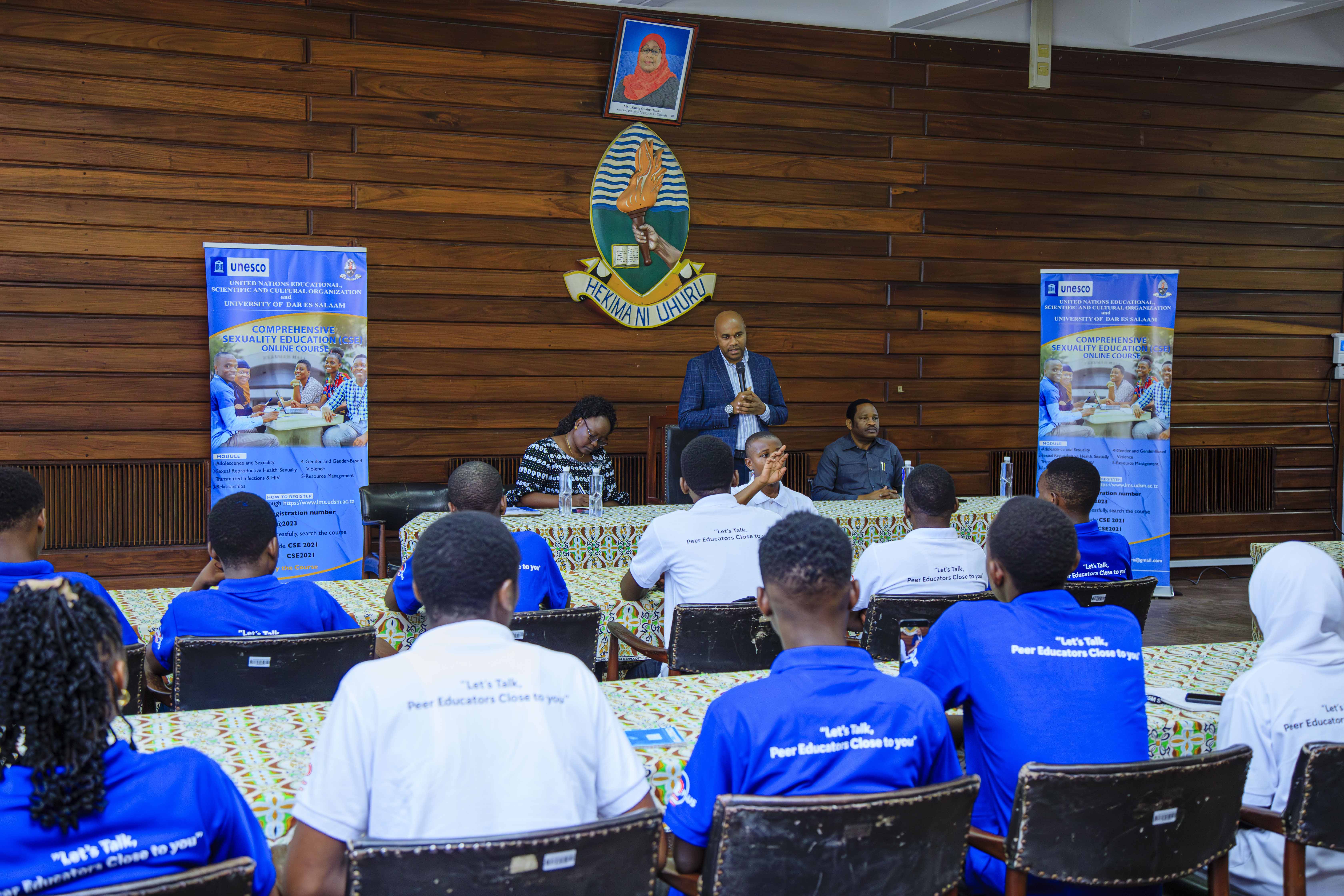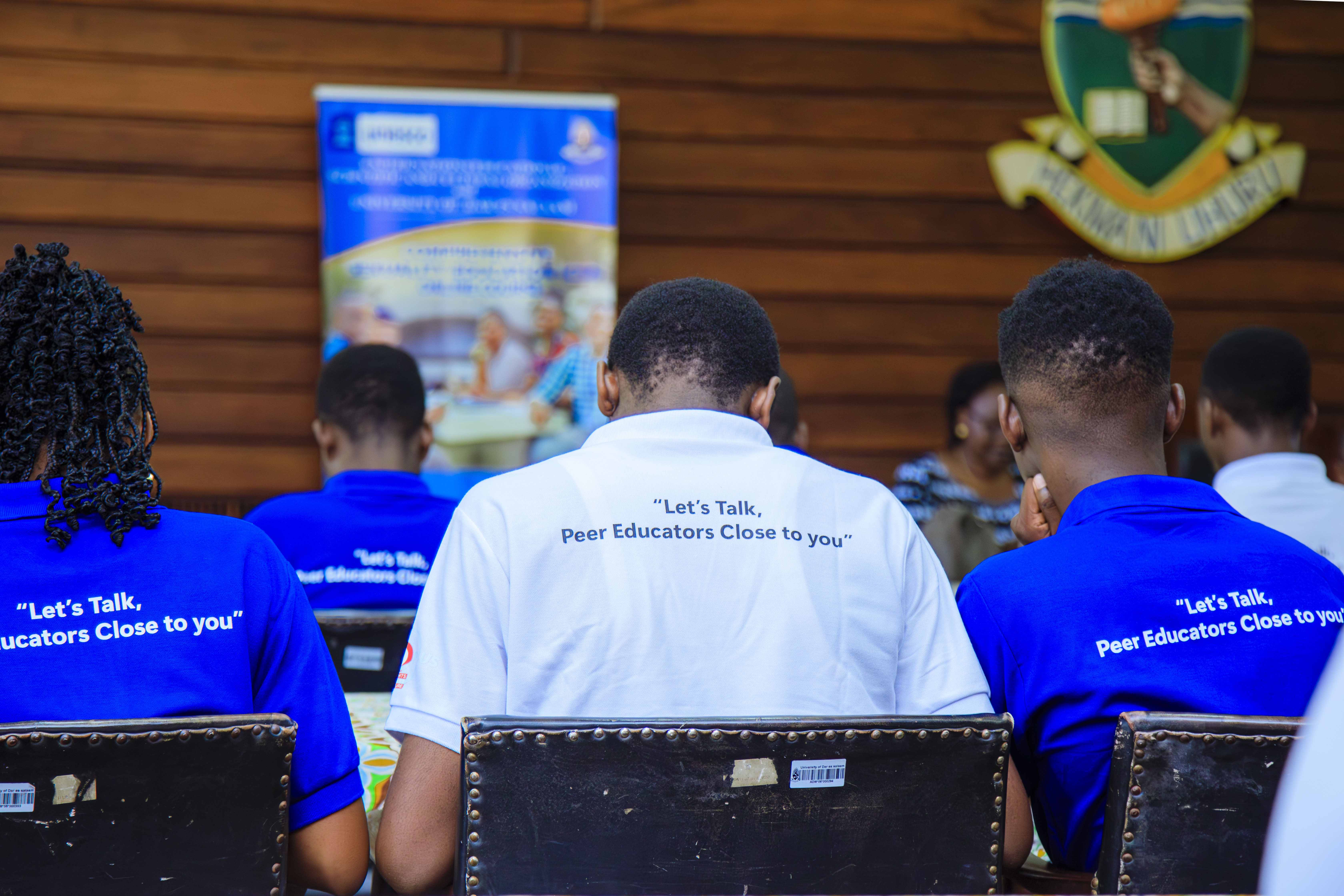UDSM trains peer educators on HIV and SGBV prevention to build safer, supportive campus environment
By Tumaini Kibangala, CMU
As part of its continued efforts to promote student health, safety, and well-being, the University of Dar es Salaam has successfully trained 64 students in peer education on HIV prevention and Sexual and Gender-Based Violence (SGBV).
The training aimed to equip participants with the knowledge and interpersonal skills needed to become effective peer educators within the university community.
Speaking at the certificate-awarding ceremony held on 11 April 2025, the Director of Planning, Development and Investment, Prof. Siasa Mzenzi—representing the Deputy Vice Chancellor–Planning, Finance and Administration, Prof. Bernadeta Killian—commended the students for volunteering to be part of a transformative mission.
“We are equipping you to become role models and ambassadors of safety, capable of nurturing a respectful, informed, and supportive student environment”, said Prof. Mzenzi.
He further encouraged the peer educators to disseminate knowledge respectfully, maintain confidentiality, and promote empathy among their peers.
Dr. Alfred Msasu, University Medical Officer In-Charge, emphasized the critical role of such programmes in curbing public health risks on campus.
“This training goes beyond facts and figures; it is about empowering students to initiate change from within their circles. Peer-to-peer communication is among the most effective ways to address issues like HIV, unintended pregnancies, and SGBV—especially in a university setting where young people are most at risk”, he said.
He added that UDSM is committed to expanding such programmes and fostering a student community that takes ownership of its well-being.
The reality many students face
Students who participated in the training shared positive feedback and a strong sense of purpose. “This programme has opened our eyes to the reality many students face. We now feel confident talking to our fellow students about safe sexual practices, healthy relationships, and where to seek help”.
“It is not just about HIV or SGBV; it is about changing how we interact as peers. I plan to start small discussion groups in my dormitory”, added one of the trainees.
The five-day intensive training, organized by the Directorate of Students Services in collaboration with UDSM Hospital, involved expert-led sessions on communication techniques, crisis response, emotional intelligence, and referral systems.
Participants received practical guidance on identifying at-risk peers, initiating difficult conversations, and supporting victims of abuse or discrimination.
The initiative reflects UDSM’s broader vision to create a safe, inclusive, and health-conscious campus—where every student feels empowered to thrive. With these newly trained peer educators now active across faculties, the university hopes to witness a tangible shift in awareness, behaviour, and peer-to-peer support on campus.


